A day after President William Ruto made controversial remarks targeting his former Deputy President Rigathi Gachagua, the latter has fired back with a scathing response.
Gachagua, during a live TikTok stream on Thursday morning, criticized Ruto’s flagship healthcare project, dubbing it a “pet project” that has turned into a mega scandal.
As reported by Kenyans.co.ke, he accused the president of rushing the proposed upgrade of the National Health Insurance Fund (NHIF) to the Social Health Authority (SHA), which has caused significant concern among Kenyans.
According to Gachagua, the overhaul of NHIF has already consumed an enormous Ksh110.9 billion.
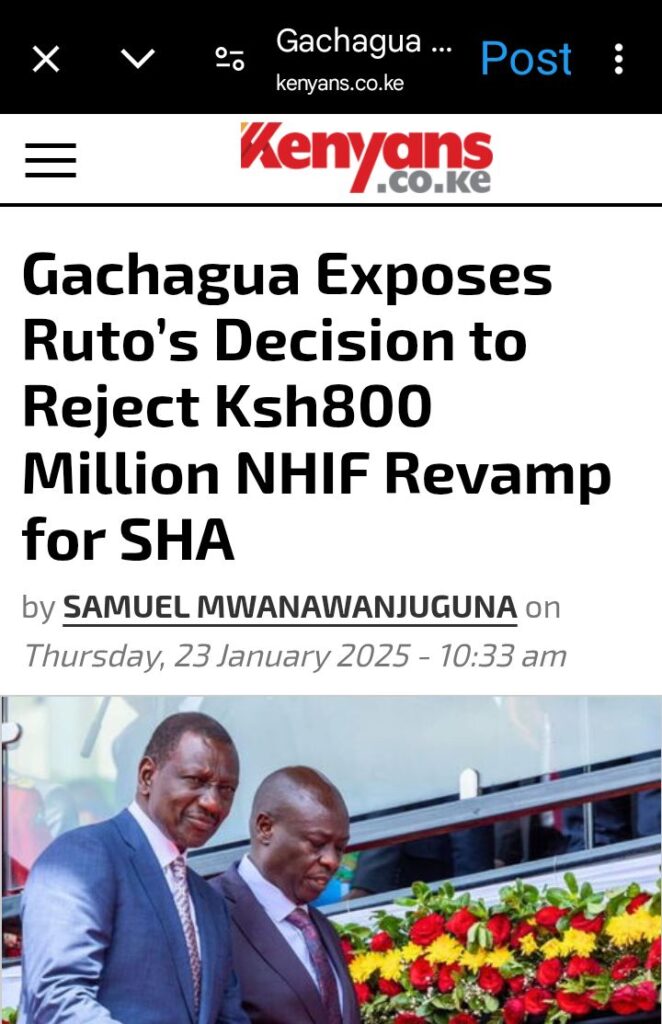
Out of this, Ksh6.1 billion was allocated for the SHA system, while a staggering Ksh104.8 billion went into the supporting technology infrastructure.
He questioned the necessity of such a costly venture, suggesting it lacked proper planning and stakeholder involvement.
Gachagua revealed that under the new SHA program, Kenyans would be required to contribute Ksh300 monthly to cover their entire family’s healthcare.
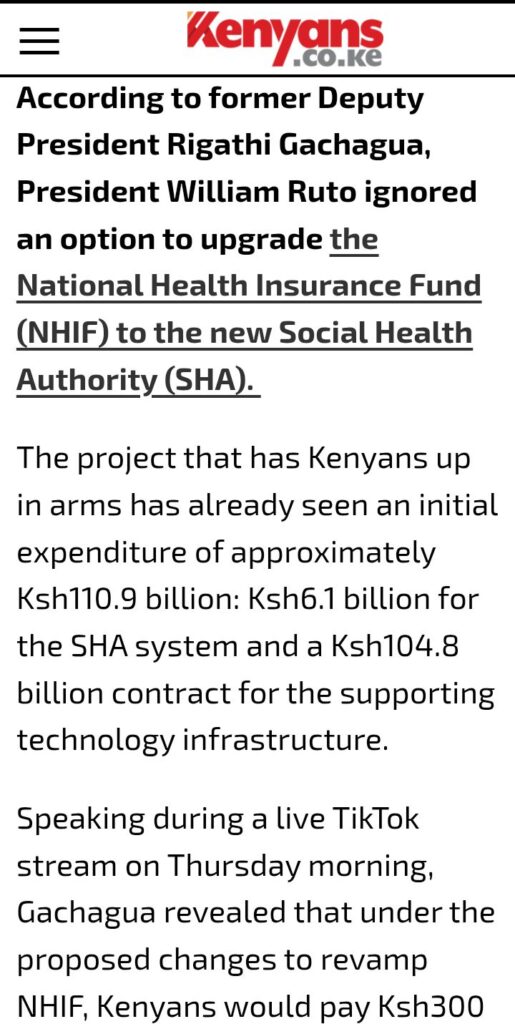
While the contribution rate for salaried workers has been set at 2.75 percent of their gross monthly income without any upper limit, non-salaried individuals, including informal sector workers, are expected to pay 2.75 percent of their annual household income, capped at Ksh300 monthly.
Gachagua noted that while the plan aimed to provide affordable healthcare, its execution has been deeply flawed.
The former Deputy President argued that the initial vision of Kenya Kwanza’s healthcare agenda was to reduce family contributions to Ksh300 while expanding coverage to include all illnesses, particularly chronic conditions.
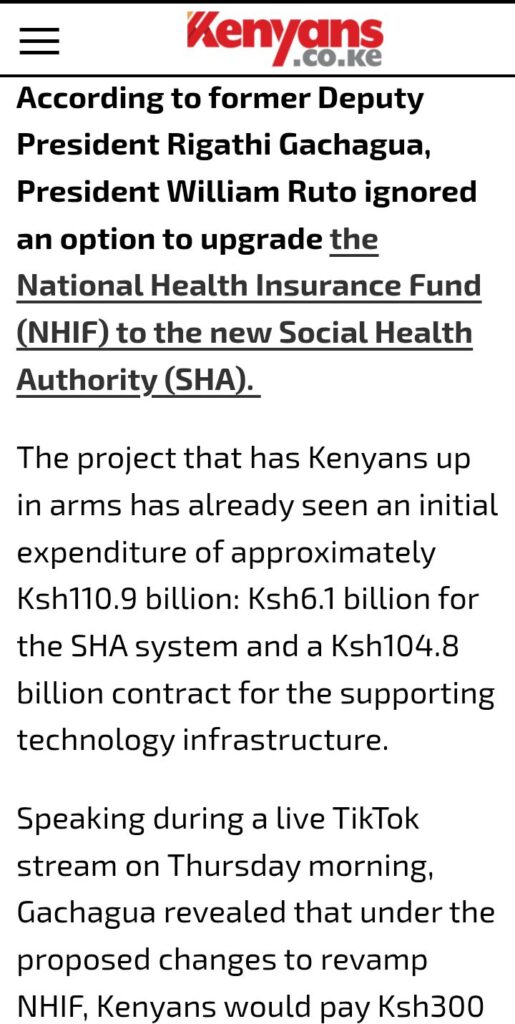
However, he lamented that the current SHA system has deviated from this vision.
He claimed the implementation was rushed, lacked adequate consultations, and has left Kenyans burdened with a system that seems more focused on profiteering than providing quality healthcare.
Gachagua pointed out that the project, introduced in October last year, has faced hurdles.
“The program’s concept was sound, but it has not been implemented well. It was hurried, and stakeholders were not sufficiently consulted,” he stated.
He also criticized the heavy investment in technology infrastructure, questioning its necessity when the healthcare system’s primary objective should be serving the people.
His remarks come amidst growing scrutiny of the SHA program, which many Kenyans feel is draining public resources without delivering tangible benefits.
Gachagua’s bold statements highlight the cracks within the Kenya Kwanza administration, particularly after his ousting in October.
His criticisms are likely to fuel public debate on the viability of Ruto’s healthcare reforms and whether they align with the promises made during the campaign period.
For now, the SHA remains a contentious topic, with Gachagua at the forefront of exposing its flaws.






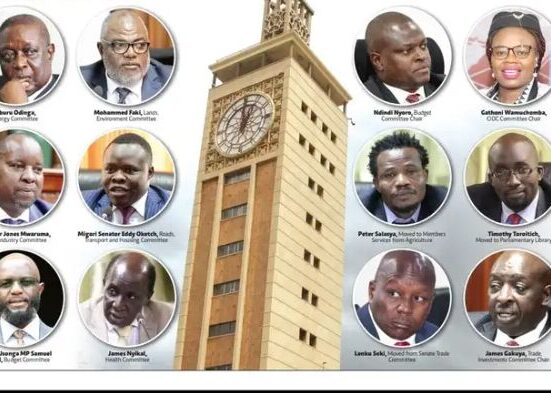



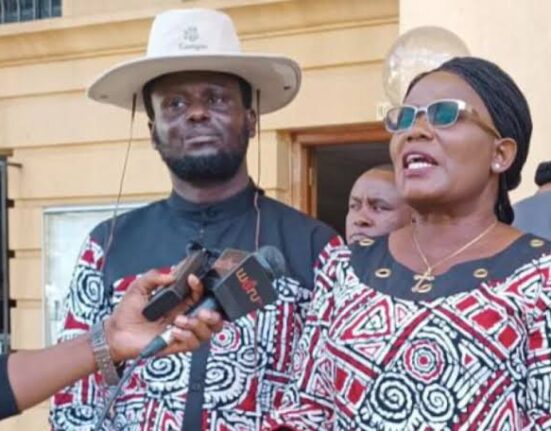

Leave feedback about this